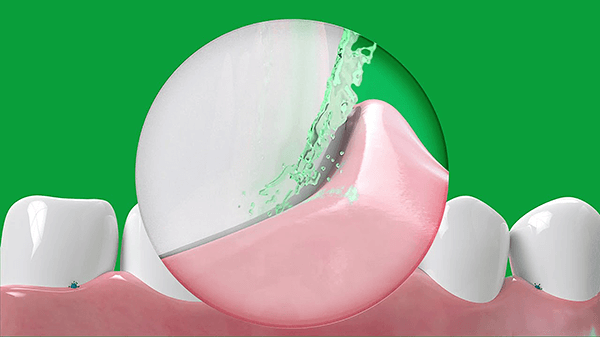Dental plaque is a thin white or yellowish coating, made up of food particles and germs, that form on your teeth after each meal. The germs naturally present in the mouth break down sugars into acids, and the acid then combines with old food particles and saliva to form plaque.
Dental plaque is the main cause of gum disease and bad breath. If not removed, it can worsen, turning into tartar or even causing tooth decay.
What Causes Dental Plaque?
Bad Oral Hygiene:
Tiny particles of food get trapped in your mouth as you eat. If you don’t practice regular oral hygiene, this buildup of food can cause germs to grow and reproduce on your teeth, resulting in dental plaque.
Smoking:
Smokers are more likely to have dental plaque because their teeth are weaker, and therefore, unable to fight infections.
High Sugar Foods and Drinks:
Germs feed on sugar and artificial sweeteners, so avoid or limit your intake of chocolates, cakes, and sweetened beverages that are high in sugar.
Weak Tooth Enamel:
Having teeth with weak enamel can also cause dental plaque. Enamel is the thin outer covering of the tooth; it helps protect your teeth from germs that result in dental plaque.
How to Remove Dental Plaque?
Dental plaque, if in early stages, can be simply removed with good oral hygiene. Following a 3-step routine for good oral hygiene is essential to reduce dental plaque, and therefore avoid tartar buildup. It is also important to regularly consult a dental professional to check and clean your teeth and gums.
If dental plaque reaches the later stages, a dentist or hygienist will need to use special instruments to remove tartar and plaque from your teeth and gum line in a process called scaling. It is an effective, non-surgical way to clean between the gums and the teeth down to the roots.
How to Prevent Dental Plaque?
Follow this three-step routine twice a day for good oral hygiene:
Brush your teeth for 2 minutes.
Floss after your meals.
Use a daily mouthwash to eliminate hidden, hard-to-reach food particles, which your toothbrush might miss.
Use toothpaste that contains fluoride. Fluoride helps the enamel of the tooth to repair itself.
Avoid food high in sugar and artificial sweeteners.
Avoid smoking.
Consult a dentist regularly for checkup and teeth cleaning.
How LISTERINE® mouthwash can help prevent plaque?
Brushing only reaches 25% of your mouth, and the germs left behind after brushing double over 1-2 hours. Rinse with LISTERINE® to reach virtually 100%. LISTERINE® mouthwashes fight germs that cause dental plaque. In addition to preventing dental plaque, LISTERINE® mouthwashes clean what brushing misses, and help fight germs between teeth, leaving you with a clean and fresh breath. Explore the complete range here, and Complete the Clean with LISTERINE®.
